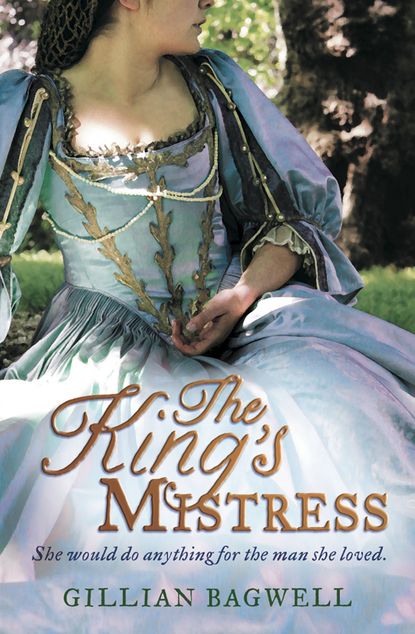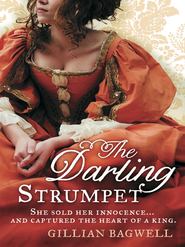По всем вопросам обращайтесь на: info@litportal.ru
(©) 2003-2025.
✖
The King’s Mistress
Настройки чтения
Размер шрифта
Высота строк
Поля
He plucked at his shirt, now grimy from the ride but clearly new.
“The people love you, Your Majesty,” Jane said. “And pray for your return.”
But none of them love you so well as I do, she thought, watching the flickering firelight play on his face.
Charles looked around the room, cosy with the fire crackling, its light chasing the shadows away, and smiled.
“A bed to sleep in tonight! I will ne’er take such comfort for granted again.”
“Of course you shall have the great bed, Your Majesty,” Henry said, “and I will take the pallet.”
“Even a pallet would be welcome,” Charles laughed, “and a great improvement from doubling myself up in priest holes, and a day spent sleeping in a tree.”
“In a tree?” Jane asked in astonishment.
“Yes,” Charles said. “When I was at Boscobel, the Giffards feared I would be discovered if I stayed within, even in the priest hole, so I spent a long day in an oak some little way behind the house, my head resting upon the lap of one Colonel Carlis, who I think you know?”
“Yes, an old friend,” Jane said.
“Cromwell’s men were searching in the woods nearby, and it scarcely seemed possible that we should escape detection. And yet despite all that, I was so tired, having gone three nights without sleep, that I slumbered, my head resting on the good colonel’s lap.”
“Will you tell us of the fight at Worcester, Your Majesty?” Henry asked, pouring more wine for all of them. “We’ve only heard pieces of the story, and none from any who know what happened so well as you.”
Charles’s eyes darkened, and Jane thought of the stories of confusion, despair, and horror she had heard from the soldiers fleeing from the battle.
“It was a desperate venture, in which people were laughing at the ridiculousness of our condition well before the battle. We had been three weeks marching from Scotland, with the rebels pursuing us, when we limped into Worcester. We knew Oliver was on his way with thirty thousand men, and I had but half that number, hungry, sick at heart, already worn out, many lacking even shoes to their feet.”
Jane thought of the ragged survivors on the road past Bentley the day after the battle. It was a wonder any had survived at all, she thought, if they had begun in such desperate condition.
“We needed every advantage we could get. We blew up the bridges leading to the town, dug earthworks, built up the fort, and waited. When at length Cromwell came, he fired upon the city, but made no further move for three days.”
Charles was on his feet now, pacing. Jane could imagine only too well the tension of the young king and his soldiers, knowing the battle would come but not when, having to stay vigilant and ready despite their exhaustion and apprehension.
“He was waiting, you see, for the third of September.” Charles turned to them, a bitter smile creasing his face. “A year to the day since he beat us at Dunbar. And when that day dawned, he moved.”
“John Lane and I were on our way to Worcester on that day, even as the fight was under way,” Henry said. “I would we had reached you in time to be of use.”
“I would you had, too. Had we had but a few thousand more so stouthearted, perhaps the fight would have ended differently.”
He leaned a hand on the mantelpiece and stood staring down into the fire. Jane tried to imagine how a battle started.
“How did it begin? How did you know what to do, how to place your men?” she asked.
“I began the day atop the cathedral with my officers,” Charles said. “Where we could see for miles in every direction. My heart was in my throat, I can tell you, to see the enemy off to the south, so numerous.”
Jane’s throat tightened to think what he must have felt, seeing the possibility of death and destruction marching inexorably towards him.
“I cannot say whether our hopes or fears were greatest that morning, but we had one stout argument—despair. For we knew that everything rested on the outcome of that day, and for me it would be a crown or a coffin. I took a last look at that great sweeping view, the wind on the river, my men massed and waiting, and went down to fight.”
Jane pictured him, mounted and armed, raising his sword aloft, rallying his men to battle.
Follow your spirit; and upon this charge
Cry “God for Harry, England, and Saint George!”
“If bravery and determination alone were enough, you would have won,” she said.
“You held the fort and the city walls for most of the day, did you not, Your Majesty?” Henry asked.
“So we did. The tide turned, alas, when they overran the fort, and turned our guns against us. The Duke of Hamilton, who led the Scots so valiantly, was grievous wounded by a cannonball.”
Jane winced. A cannonball could easily take off a man’s head or cut him in two.
“His men held off the charge at Sidbury Gate as long as they could, but once the enemy was within the city walls, the day was lost.”
“My lord Wilmot says he never saw a fiercer fight,” Henry said.
“My men made a last stand near the town hall, and I hope I may never see such a sight again as the red of the setting sun on the blood in the streets. But it just gave me time to get to my headquarters, cast off my armour, and bid Wilmot to meet me outside the gate with fresh horses if it could be done. As it was, I heard them breaking down the front door even as I slipped out the back, and though it was only steps to St Martin’s Gate, it was a near thing that I got out.”
His look of bleak despair chilled Jane’s heart, and she wished she could take him into her arms and comfort him.
“There was no other way, surely,” she said, “but for you to fly?”
“No,” Charles agreed. “My life and any hope for the future of the kingdom would have been lost had I tarried but five minutes longer. Outside the walls, Wilmot and I encountered some of our troops. I tried to rally them to go back and try once more, but it was no use, and it would probably have done little but let me die fighting instead of fleeing.”
The fire was burning low, and Jane was exhausted with the day’s riding. She longed for a minute alone with Charles, but there seemed no graceful way to manage it, so she rose to leave. Charles’s eyes met hers, and she felt their heat.
“Let me light you to your room, Mistress Jane,” he said, picking up the candle from the table.
“I’ll do it, Your Majesty,” Henry said, rising.
“Sit, Lascelles,” Charles said, and it was not a request. “I said I’ll light the lady’s way.”
Henry bowed his head in assent, though Jane could practically hear the questions and protests in his mind.
“Good night, Henry,” she said demurely, not meeting his eyes. “I’ll see you on the morrow.”
Candle in hand, Charles led the way down the passage. He loomed before her in the darkness, the candlelight silhouetting him in its golden glow. In a moment they would be alone. Her heart beat faster at the thought of his arms around her, his mouth on hers. But to Jane’s disappointment, when they got to her room he opened the door for her but did not follow her inside. She looked up at him, not quite daring to reach out a hand to touch him, to tilt her head back and draw him into a kiss. He took her hand, turned it over, and the feel of his lips on her palm made her belly contract with desire.
“I’ll go back to your cousin now, sweet Jane.”
No, Jane thought, don’t go.
Charles smiled and stroked her cheek, as if reading her thoughts. “Henry has hazarded his life for my safety, and I would not cause him unease or make him think I regard you with less than honourable respect, which indeed I do not.”
“Then good night, sir,” Jane said, turning.
“But, Jane,” Charles said, stopping the door with his foot, “I’ll see you in my dreams, make no mistake.”






